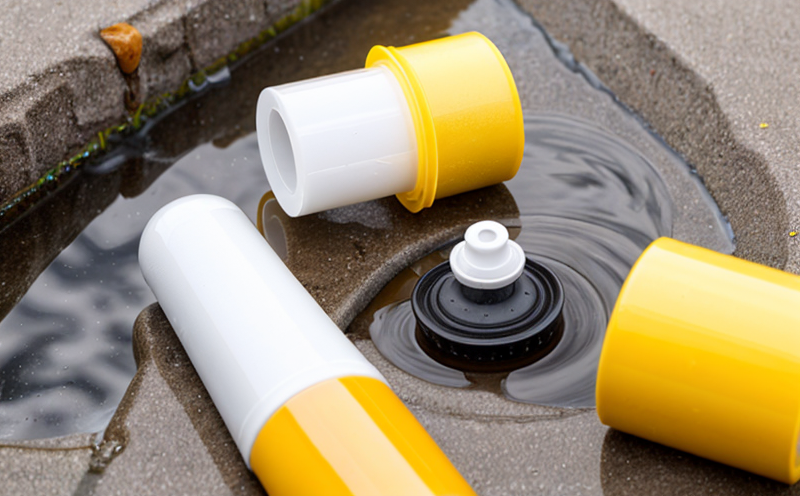BS 7209 Determination of water vapour permeability of fabrics
The British Standard BS 7209 outlines a method to determine the water vapour permeability (WVP) of fabrics, which is crucial for understanding how garments and textiles behave in various environmental conditions. This standard is particularly important for sectors such as clothing, footwear, and automotive interiors where breathability is a key factor.
The test involves subjecting specimens to controlled moisture gradients using a climatic chamber. The permeability value is calculated by measuring the rate of water vapour flow through the fabric under specified conditions. This allows manufacturers to ensure that their products meet specific performance criteria, especially in terms of comfort and durability.
One of the primary applications of this test is in the development of athletic wear where breathability directly impacts user satisfaction. By determining how effectively a fabric can allow moisture vapour to pass through it, designers can optimize clothing for enhanced performance during physical activities. Additionally, this standard plays a significant role in the design and certification of protective clothing used by workers in environments with high humidity levels.
Another critical area where BS 7209 is applicable is in the automotive industry, ensuring that interior materials remain comfortable even under extreme conditions. The test helps manufacturers evaluate whether their fabrics can effectively manage internal moisture within vehicles, thereby enhancing occupant comfort and safety.
The testing procedure itself involves several steps: preparation of the fabric specimen according to defined dimensions, conditioning it in a specific relative humidity environment for an appropriate period before testing begins. During the actual test, the sample is exposed to both dry air on one side and humidified air on the other side. The rate at which water vapour passes through the material is then measured using sensitive instruments.
It's important to note that accurate specimen preparation is essential for obtaining reliable results. This includes ensuring that the fabric does not contain any defects or irregularities that could affect the permeability measurement. Proper conditioning ensures that the fabric reaches equilibrium with its surrounding environment, providing more consistent and repeatable test outcomes.
The use of this standard also extends beyond mere compliance; it serves as a tool for continuous improvement in product development. By regularly testing fabrics using BS 7209, manufacturers can identify areas where improvements are needed to enhance breathability without compromising other desired properties like strength or appearance.
For those looking into more advanced applications of this standard, there are variations available that consider additional factors such as the influence of temperature on permeability. These extended tests provide even deeper insights into how different environmental conditions interact with fabric performance.
Applied Standards
The British Standard BS 7209 is widely recognized for its precision and reliability in measuring the water vapour permeability of fabrics. It aligns closely with other international standards such as ISO 15684-3, which extends beyond just fabric testing to include membranes used in medical devices. However, when focusing specifically on textiles like those found in clothing or automotive upholstery, BS 7209 remains the preferred choice due to its tailored approach.
- BS 7209: The primary standard for determining water vapour permeability of fabrics.
- ISO 15684-3: Offers a broader perspective including medical applications but not specifically targeting textiles in clothing or automotive sectors.
Eurolab Advantages
Eurolab offers comprehensive support for all aspects of BS 7209 testing, ensuring that clients receive accurate and consistent results every time. Our team of experts ensures rigorous adherence to the standard's requirements throughout each step of the process – from specimen preparation through final analysis.
- Comprehensive expertise in fabric testing according to BS 7209 guidelines.
- State-of-the-art facilities equipped with advanced instruments capable of delivering precise measurements.
- A dedicated team focused on maintaining the highest levels of accuracy and reliability.
We also provide detailed reports that include all relevant data from our testing sessions, helping clients understand not only their results but also any potential areas for improvement. Our commitment to excellence ensures that every project receives personalized attention tailored specifically to meet your unique needs.
Competitive Advantage and Market Impact
- By adhering strictly to BS 7209 standards, companies can demonstrate a commitment to quality and compliance. This builds trust with customers who value high-performance products.
- Accurate measurement of water vapour permeability allows manufacturers to optimize fabric designs for better performance in diverse climates, giving them an edge over competitors who may not have such detailed insights into their product's capabilities.
- The ability to consistently meet strict industry standards like BS 7209 can differentiate a company from others within the same market segment. It signals reliability and attention to detail that customers appreciate highly.
Incorporating these tests into your product development process not only enhances customer satisfaction but also opens up new opportunities for growth by expanding into markets where breathability is particularly valued, such as sports apparel or industrial protective gear.





